Understanding the Role of Nutritional Therapy in Cancer Treatment in Mexico
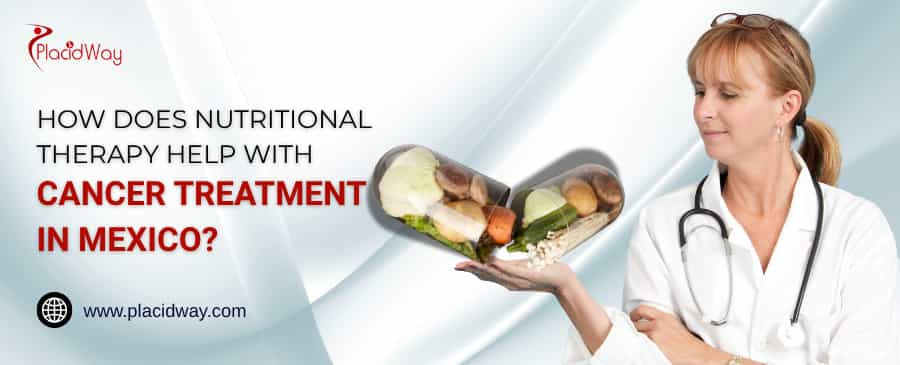
"Nutritional therapy in Mexico's cancer treatment centers focuses on optimizing a patient's diet and nutrient intake to support the body's healing processes, boost the immune system, manage side effects of conventional treatments, and create an environment less conducive to cancer growth."
When facing a cancer diagnosis, many individuals seek out comprehensive and integrative approaches to treatment that go beyond conventional methods. Mexico has emerged as a prominent destination for such therapies, with nutritional therapy playing a central role in many of its specialized cancer clinics. This approach recognizes that proper nutrition is fundamental to the body's ability to fight disease and recover from intensive treatments. By addressing the specific nutritional needs of cancer patients, these clinics aim to enhance overall well-being, improve treatment outcomes, and ultimately, help patients regain control over their health. This blog post will delve into the various ways nutritional therapy contributes to cancer treatment in Mexico, answering common questions and providing detailed insights into this vital component of integrative care.
What is Nutritional Therapy in the Context of Cancer?
"Nutritional therapy for cancer involves a personalized dietary and supplement plan designed to provide optimal nourishment, reduce inflammation, support detoxification, and strengthen the immune system, often complementing conventional cancer treatments."
Nutritional therapy for cancer goes far beyond simply "eating healthy." It's a highly individualized approach that considers the patient's specific type of cancer, stage of disease, current health status, and any ongoing conventional treatments like chemotherapy or radiation. The core principle is to provide the body with the essential building blocks it needs to repair, regenerate, and fight disease, while simultaneously minimizing factors that could promote cancer growth, such as inflammation or toxicity. This often involves a focus on whole, organic foods, specialized dietary protocols (like plant-based or ketogenic diets, depending on the individual case), and targeted nutritional supplements to address deficiencies or specific therapeutic goals. The aim is to create an internal environment that supports healing and makes the body less hospitable for cancer cells.
Why is Nutritional Therapy Emphasized in Mexican Cancer Clinics?
"Mexican cancer clinics often emphasize nutritional therapy as part of an integrative approach, believing that optimizing the body's internal environment and immune function is crucial for effective cancer treatment and recovery."
Many Mexican cancer clinics operate under an integrative philosophy, meaning they combine the best of conventional medicine with evidence-informed alternative and complementary therapies. This holistic perspective recognizes that cancer is not just a localized disease but often reflects systemic imbalances. Nutritional therapy fits perfectly into this framework by addressing the body's foundational health. Unlike some conventional settings that might only focus on preventing weight loss, these clinics actively use nutrition as a therapeutic tool. They understand that a well-nourished body is better equipped to tolerate aggressive treatments, recover faster, and mount a stronger immune response against cancer. Furthermore, the less stringent regulations in Mexico often allow for the use of a wider range of specialized nutritional interventions and supplements that may not be readily available or approved in other countries.
How Does Nutritional Therapy Support the Immune System in Cancer Patients?
"Nutritional therapy supports the immune system in cancer patients by providing essential vitamins, minerals, and antioxidants that are critical for immune cell function, as well as by promoting a healthy gut microbiome."
A robust immune system is paramount in the fight against cancer. Cancer itself, along with many conventional treatments, can significantly weaken immune function, making patients more susceptible to infections and less able to fight cancer cells. Nutritional therapy addresses this by ensuring the body receives a steady supply of micronutrients vital for immune cells, such as Vitamin C, Vitamin D, Zinc, and Selenium. Antioxidants from fruits and vegetables help neutralize free radicals that can damage immune cells. Moreover, a significant part of the immune system resides in the gut. Nutritional protocols often focus on fostering a healthy gut microbiome through probiotic-rich foods and fibers, which in turn enhances immune surveillance and modulates inflammatory responses. This comprehensive approach helps the body rebuild its defenses and potentially recognize and eliminate cancer cells more effectively.
Can Nutritional Therapy Help Manage Side Effects of Conventional Cancer Treatments?
"Yes, nutritional therapy can significantly help manage common side effects of conventional cancer treatments like chemotherapy and radiation, including nausea, fatigue, loss of appetite, and digestive issues."
Conventional cancer treatments are notoriously tough on the body, causing a range of debilitating side effects. Nutritional therapy plays a critical role in alleviating these symptoms. For example:
-
Nausea and Vomiting: Specific bland, easy-to-digest foods, ginger, and small, frequent meals can help. IV nutrient infusions may be used to bypass the digestive system and deliver essential nourishment.
-
Fatigue: Providing consistent energy through balanced macronutrients, avoiding blood sugar spikes, and ensuring adequate iron and B vitamin intake can combat cancer-related fatigue.
-
Loss of Appetite/Taste Changes: Customized meal plans with palatable, nutrient-dense options, and the use of appetite stimulants (natural or prescribed) are often employed.
-
Digestive Issues (Diarrhea/Constipation): Fiber adjustments, probiotics, and specific foods that soothe the gut lining can help regulate bowel movements. By addressing these side effects, nutritional therapy helps patients maintain their strength and quality of life, allowing them to better adhere to their conventional treatment schedules.
What Kinds of Foods are Recommended in Cancer Nutritional Therapy?
"Cancer nutritional therapy typically recommends an organic, whole-food, plant-based diet rich in fruits, vegetables, whole grains, and healthy fats, while often limiting processed foods, refined sugars, and unhealthy fats."
The specific dietary recommendations in cancer nutritional therapy can vary depending on the individual and the clinic's philosophy, but common themes emerge:
-
Organic Produce: Emphasizing organic fruits and vegetables helps minimize exposure to pesticides and herbicides, which can add to the body's toxic burden. These foods are packed with vitamins, minerals, antioxidants, and phytochemicals that have protective and anti-cancer properties.
-
Whole Grains: Brown rice, quinoa, oats, and other whole grains provide complex carbohydrates for sustained energy and fiber for digestive health.
-
Healthy Fats: Sources like avocados, nuts, seeds, and olive oil provide essential fatty acids that reduce inflammation and support cellular health. Omega-3 fatty acids, found in flaxseeds and certain fish oils, are often highlighted for their anti-inflammatory effects.
-
Lean Proteins: While some therapies might limit animal protein, others emphasize lean sources like organic poultry, wild-caught fish, and plant-based proteins such as legumes, lentils, and tofu, for tissue repair and immune function.
-
Fermented Foods: Kimchi, sauerkraut, and unsweetened yogurt can support a healthy gut microbiome.
Foods typically limited or avoided include processed foods, refined sugars, artificial sweeteners, excessive red and processed meats, and unhealthy trans fats, as these can promote inflammation and potentially fuel cancer growth.
Are There Specific Nutritional Supplements Used in Cancer Treatment in Mexico?
"Yes, many Mexican cancer clinics utilize specific nutritional supplements, including high-dose vitamins (e.g., Vitamin C, Vitamin D), minerals (e.g., selenium, zinc), enzymes, and herbal extracts, tailored to the patient's individual needs and cancer type."
Beyond dietary modifications, nutritional supplements are a cornerstone of cancer therapy in many Mexican clinics. These are not "one-size-fits-all" prescriptions but are carefully chosen based on detailed patient assessments, including blood tests and diagnostic imaging. Common supplements include:
-
High-Dose Vitamin C (IV): Administered intravenously, high-dose Vitamin C is believed by some to have selective toxicity to cancer cells while sparing healthy cells, and to boost immune function.
-
Vitamin D: Often deficient in cancer patients, optimal Vitamin D levels are crucial for immune regulation and have been linked to improved cancer outcomes.
-
Enzymes: Pancreatic enzymes or systemic enzymes are sometimes used to help break down the protective fibrin coating around cancer cells, making them more vulnerable to the immune system and other treatments.
-
Minerals: Selenium, zinc, and magnesium are frequently supplemented due to their roles in immune function, antioxidant defense, and cellular processes.
-
Herbal Extracts: Various herbal compounds, such as curcumin (from turmeric), green tea extract, and medicinal mushrooms, are used for their anti-inflammatory, antioxidant, and immune-modulating properties. The rationale behind using these supplements is to create a powerful synergistic effect with other treatments, enhancing their efficacy and minimizing adverse effects.
How is a Nutritional Plan Developed for a Cancer Patient in Mexico?
"A nutritional plan for a cancer patient in Mexico is typically developed through a comprehensive assessment by a specialized nutritionist or medical team, including dietary history, current health status, lab tests, and the patient's specific cancer diagnosis."
The development of a personalized nutritional plan in these clinics is a meticulous process. It usually begins with a thorough intake and assessment, which may include:
-
Detailed Dietary History: Understanding the patient's current eating habits, food preferences, allergies, and intolerances.
-
Medical History and Cancer Diagnosis: Reviewing the type and stage of cancer, previous treatments, and overall health conditions.
-
Laboratory Tests: Blood tests to assess nutrient deficiencies, inflammatory markers, liver and kidney function, and other biomarkers relevant to nutritional status.
-
Diagnostic Imaging: Reviewing scans to understand tumor size and location, which can influence dietary needs (e.g., if there are digestive obstructions). Based on this comprehensive data, a qualified nutritionist or medical doctor specializing in integrative oncology crafts a tailored plan. This plan is often dynamic and adjusted throughout the treatment journey as the patient's condition evolves. It typically includes specific food recommendations, meal timings, hydration guidelines, and a precise regimen of nutritional supplements.
What is the Role of Detoxification in Nutritional Therapy for Cancer?
"Detoxification in nutritional therapy for cancer aims to reduce the body's toxic burden from environmental pollutants, metabolic waste, and treatment byproducts, supporting liver function and improving overall cellular health."
Many integrative cancer centers in Mexico believe that a buildup of toxins can hinder the body's healing capabilities and contribute to disease. Therefore, detoxification is often an integral part of their nutritional therapy programs. This involves strategies to support the body's natural detoxification pathways, primarily through the liver, kidneys, and gut.
-
Specific Foods: Emphasizing cruciferous vegetables (broccoli, kale), leafy greens, and other foods rich in compounds that support liver detoxification enzymes.
-
Hydration: Adequate water intake is crucial for flushing out toxins.
-
Coffee Enemas/Colon Hydrotherapy: Some clinics incorporate these methods to support liver function and colon cleansing, aiming to eliminate toxins more efficiently.
-
Herbal Support: Certain herbs are used to support liver health and bile flow. The goal of detoxification is not to "cure" cancer, but to reduce the overall burden on the body, allowing it to focus its energy on healing and responding better to therapies.
Is Nutritional Therapy a Standalone Cancer Treatment in Mexico?
"While highly emphasized, nutritional therapy in Mexican cancer clinics is rarely a standalone treatment but rather a foundational component of a broader integrative approach that combines various conventional and complementary therapies."
It's important to clarify that while nutritional therapy is a cornerstone of integrative cancer treatment in Mexico, it is generally not presented as a sole cure for cancer. Instead, it is seen as a powerful adjunctive therapy that enhances the effectiveness of other treatments and supports the patient's overall health. Most reputable clinics in Mexico offer comprehensive programs that blend nutritional interventions with other modalities such as immunotherapy, hyperthermia, low-dose chemotherapy, targeted therapies, and psychological support. The synergy between these different approaches is believed to yield the best possible outcomes for patients. Nutritional therapy creates the optimal internal environment for these other therapies to work more effectively.
How Does Nutritional Therapy Address Cachexia in Cancer Patients?
"Nutritional therapy addresses cancer cachexia by providing high-calorie, nutrient-dense foods and specialized supplements to counteract muscle wasting, weight loss, and severe fatigue commonly seen in advanced cancer."
Cancer cachexia is a complex metabolic syndrome characterized by progressive weight loss, muscle wasting, fatigue, and anorexia, often seen in advanced cancer stages. It significantly impacts a patient's quality of life and response to treatment. Nutritional therapy is crucial in managing cachexia. The approach involves:
-
High-Calorie, Nutrient-Dense Foods: Focusing on foods that provide maximum calories and nutrients in smaller volumes, such as healthy fats, protein shakes, and concentrated vegetable purees.
-
Increased Protein Intake: Ensuring sufficient protein to combat muscle breakdown and support muscle synthesis.
-
Appetite Stimulation: Using natural methods or, if necessary, pharmacological agents to improve appetite.
-
IV Nutritional Support: When oral intake is insufficient, intravenous delivery of nutrients (e.g., amino acids, lipids, dextrose) can provide critical support.
-
Anti-inflammatory Strategies: Addressing systemic inflammation, which contributes to cachexia, through specific foods and supplements. By proactively managing cachexia, nutritional therapy helps preserve muscle mass and strength, improves energy levels, and enhances the patient's ability to tolerate and respond to other cancer treatments.
What is the Mediterranean Diet's Role in Cancer Nutritional Therapy?
"The Mediterranean diet, known for its emphasis on plant-based foods, healthy fats, and lean proteins, serves as a strong foundation or inspiration for many cancer nutritional therapy plans due to its anti-inflammatory and antioxidant properties."
The Mediterranean diet is widely recognized for its health benefits, including reducing the risk of chronic diseases. In the context of cancer nutritional therapy, its principles often form a valuable baseline. This diet emphasizes:
-
Abundant Fruits and Vegetables: Rich in antioxidants, vitamins, and fiber.
-
Whole Grains: Providing complex carbohydrates and fiber.
-
Legumes, Nuts, and Seeds: Excellent sources of plant-based protein, fiber, and healthy fats.
-
Olive Oil as the Primary Fat Source: Known for its monounsaturated fats and polyphenols.
-
Moderate Consumption of Fish and Seafood: Providing omega-3 fatty acids.
-
Limited Red Meat and Processed Foods: Reducing inflammatory components. While a standard Mediterranean diet might be modified for specific cancer types or individual needs (e.g., stricter organic requirements, specific juicing protocols), its core tenets of whole, unprocessed foods and healthy fats align well with the goals of promoting cellular health and reducing inflammation, which are crucial in cancer management.
Are There Any Risks or Considerations with Nutritional Therapy in Mexico?
"While generally beneficial, potential risks or considerations with nutritional therapy include interactions with conventional treatments, potential for nutrient imbalances if not professionally guided, and the importance of choosing a reputable clinic."
While nutritional therapy is largely safe and beneficial, especially when supervised by experienced professionals, there are important considerations:
-
Interactions with Conventional Treatments: Some supplements can interact with chemotherapy or radiation, either reducing their effectiveness or increasing toxicity. It's crucial that the integrative team thoroughly understands all treatments the patient is undergoing.
-
Nutrient Imbalances: Self-prescribing high doses of certain nutrients or following restrictive diets without expert guidance can lead to imbalances or deficiencies, potentially harming rather than helping.
-
Quality of Supplements: The quality and purity of supplements can vary. Reputable clinics in Mexico work with trusted suppliers.
-
Cost: While overall treatment costs in Mexico can be lower than in some Western countries, comprehensive nutritional programs and specialized supplements do incur costs.
-
Reputation of Clinic: It is vital for patients to thoroughly research and choose reputable clinics with qualified medical staff and transparent practices to ensure safe and effective care.
Patients should always openly discuss their nutritional therapy plans with their entire healthcare team to ensure a coordinated and safe approach.
How Long Does Nutritional Therapy Typically Last During Cancer Treatment?
"The duration of nutritional therapy during cancer treatment varies, often continuing throughout the active treatment phase and extending into recovery and maintenance, adapting as the patient's health evolves."
Nutritional therapy is not a short-term intervention; it's typically an ongoing process.
-
During Active Treatment: The most intensive phase, where the focus is on supporting the body through therapies, managing side effects, and optimizing the internal environment for healing. This can involve daily specific meals, juices, and supplement protocols.
-
Post-Treatment/Recovery: As conventional treatments conclude, the focus shifts to recovery, rebuilding tissues, replenishing nutrient stores, and strengthening the immune system for long-term health. The dietary plan may become less restrictive but remains health-focused.
-
Long-Term Maintenance: Many patients choose to adopt the principles learned during their therapy as a permanent lifestyle change, recognizing the importance of nutrition for continued wellness and cancer prevention. The exact duration is highly personalized and depends on the individual's response to treatment, the type of cancer, and their overall health goals. Regular assessments and adjustments by the nutritional therapy team are key to its success.
What is the Role of Hydration in Cancer Nutritional Therapy?
"Hydration is critical in cancer nutritional therapy to support cellular function, aid detoxification, help transport nutrients, and alleviate side effects like constipation and dry mouth, often recommending clean, filtered water and fresh juices."
Proper hydration is a fundamental, yet often overlooked, aspect of cancer nutritional therapy. Water is essential for countless bodily functions, especially when the body is under the stress of cancer and its treatments.
-
Cellular Function: Water is crucial for metabolic processes within cells, nutrient transport, and waste removal.
-
Detoxification: Adequate fluid intake supports the kidneys in flushing out toxins and metabolic byproducts, including those from conventional treatments.
-
Digestion: Hydration helps prevent constipation, a common side effect, and supports efficient nutrient absorption.
-
Managing Side Effects: It can alleviate dry mouth (xerostomia), often caused by radiation therapy or certain medications. Nutritional therapy typically emphasizes consuming clean, filtered water, often alkaline water, and fresh, organic vegetable and fruit juices, which contribute to both hydration and nutrient intake. Avoiding sugary drinks and artificial beverages is also a key recommendation.
Can Nutritional Therapy Help Prevent Cancer Recurrence?
"While no single factor guarantees prevention, adopting a comprehensive nutritional therapy approach can significantly contribute to preventing cancer recurrence by maintaining a healthy immune system, reducing inflammation, and optimizing cellular health long-term."
The role of nutritional therapy in preventing cancer recurrence is a strong area of focus in integrative oncology. While there's no magic bullet, consistent adherence to a healthy, anti-inflammatory, and nutrient-dense diet, along with appropriate supplementation, can create an environment that is less conducive to cancer growth and metastasis.
-
Immune Surveillance: A strong immune system is better equipped to identify and eliminate rogue cancer cells before they can form new tumors.
-
Reduced Inflammation: Chronic inflammation is linked to cancer progression and recurrence. Nutritional strategies that reduce inflammation can lower this risk.
-
Blood Sugar Regulation: Managing blood sugar levels and insulin sensitivity is important, as high glucose can fuel cancer cells.
-
Antioxidant Protection: A diet rich in antioxidants helps protect cells from damage that could lead to new mutations. Many clinics in Mexico provide patients with post-treatment nutritional guidelines and support to help them maintain these beneficial lifestyle changes for the long term, empowering them to take an active role in their health and reduce their risk of recurrence.
What Certifications Should I Look for in a Nutritionist in Mexico?
"When seeking a nutritionist for cancer treatment in Mexico, look for professionals with degrees in nutrition or dietetics, specialized training in oncology nutrition or integrative medicine, and affiliations with reputable medical organizations."
Choosing a qualified professional is paramount for effective and safe nutritional therapy. When considering clinics in Mexico, inquire about the qualifications of their nutritionists or dietitians. Look for:
-
Academic Background: A degree in nutrition, dietetics, or a related health science.
-
Specialized Training: Certifications or extensive experience in oncology nutrition, integrative medicine, functional medicine, or a specific nutritional therapy approach (e.g., Gerson therapy if that's what you're interested in).
-
Clinical Experience: Experience working with cancer patients and understanding the complexities of their unique nutritional needs and treatment side effects.
-
Team Integration: Ensure the nutritionist works closely with the rest of the medical team (oncologists, doctors) to ensure a cohesive and safe treatment plan. Reputable clinics will readily provide information about their staff's qualifications and experience, demonstrating their commitment to professional and evidence-informed care.
What is the Gerson Therapy, and is it Offered in Mexico?
"The Gerson Therapy is a comprehensive nutritional program involving a strict organic plant-based diet, raw juices, coffee enemas, and specific supplements, and it is offered by some integrative cancer clinics in Mexico."
The Gerson Therapy is one of the more well-known and intensive nutritional therapies developed by Dr. Max Gerson in the 1920s. It is based on the belief that cancer and other chronic diseases are caused by toxicity and nutritional deficiencies. The core components of Gerson Therapy include:
-
Strict Organic Plant-Based Diet: Almost entirely vegetarian, very low in sodium, fats, and proteins.
-
Frequent Juicing: Up to 13 glasses of fresh, organic, raw vegetable and fruit juices daily, prepared with a specific juicer.
-
Detoxification Protocols: Primarily coffee enemas (up to 5 times daily) to stimulate liver detoxification and bile flow.
-
Nutritional Supplements: Including potassium compounds, thyroid supplements, and pancreatic enzymes. Some integrative cancer clinics in Mexico do offer the Gerson Therapy, often as an enhanced or modified version. It is a highly demanding protocol that requires strict adherence and is typically administered in an inpatient setting initially, followed by a rigorous home program. Patients considering Gerson Therapy should be fully aware of its intensity and discuss it thoroughly with medical professionals.
How Does Nutritional Therapy Support Mental and Emotional Well-being?
"Nutritional therapy supports mental and emotional well-being in cancer patients by providing nutrients essential for brain function and neurotransmitter production, stabilizing blood sugar, and reducing inflammation, which can positively impact mood and energy levels."
The journey through cancer treatment can be emotionally and mentally taxing. Nutritional therapy contributes significantly to mental and emotional well-being through several mechanisms:
-
Brain Health: Essential fatty acids (omega-3s), B vitamins, and minerals like magnesium are crucial for optimal brain function and the production of neurotransmitters that regulate mood.
-
Blood Sugar Stability: A diet that stabilizes blood sugar levels prevents energy crashes and mood swings, which can exacerbate feelings of anxiety or depression.
-
Reduced Inflammation: Chronic inflammation is increasingly linked to mood disorders. An anti-inflammatory diet can help mitigate this.
-
Improved Energy Levels: By combating fatigue and supporting overall vitality, good nutrition can empower patients to engage more actively in their healing process and daily life.
-
Sense of Control: For many patients, actively participating in their nutritional therapy provides a sense of control and empowerment over their health, which can be immensely beneficial for psychological well-being. Many clinics in Mexico also integrate psychological support, counseling, and mindfulness practices alongside nutritional therapy to provide comprehensive care for the whole person.
What Are IV Nutritional Therapies and Their Benefits in Mexico?
"IV nutritional therapies involve delivering high doses of vitamins, minerals, and other nutrients directly into the bloodstream, bypassing the digestive system to ensure maximum absorption and provide rapid therapeutic effects in cancer patients."
Intravenous (IV) nutritional therapies are a common offering in many integrative cancer clinics in Mexico. This method of delivery offers several advantages:
-
Bypass Digestion: For cancer patients who may have impaired digestion due to the disease or treatments (e.g., nausea, malabsorption), IV delivery ensures that nutrients are fully absorbed without going through the digestive tract.
-
Higher Doses: Nutrients can be delivered in much higher concentrations than can be achieved orally, potentially leading to stronger therapeutic effects.
-
Rapid Delivery: Nutrients quickly reach cells throughout the body, providing immediate benefits. Common IV therapies include high-dose Vitamin C, various B vitamins, magnesium, calcium, selenium, and amino acids. These infusions are used to support immune function, reduce inflammation, combat fatigue, aid detoxification, and provide a direct nutritional boost, especially when oral intake is compromised. They are often part of a broader, personalized treatment plan.
Nutritional therapy is a cornerstone of integrative cancer treatment in Mexico, offering a holistic approach that complements conventional medical care. By focusing on individualized dietary plans, targeted supplementation, detoxification, and immune support, these therapies aim to optimize the body's natural healing capabilities, manage treatment side effects, and improve overall patient well-being. This comprehensive strategy empowers patients to actively participate in their recovery journey and strives to create an internal environment less hospitable to cancer.
Explore PlacidWay for solutions related to medical tourism, healthcare services, and other relevant offerings that can support your health journey.


.png)

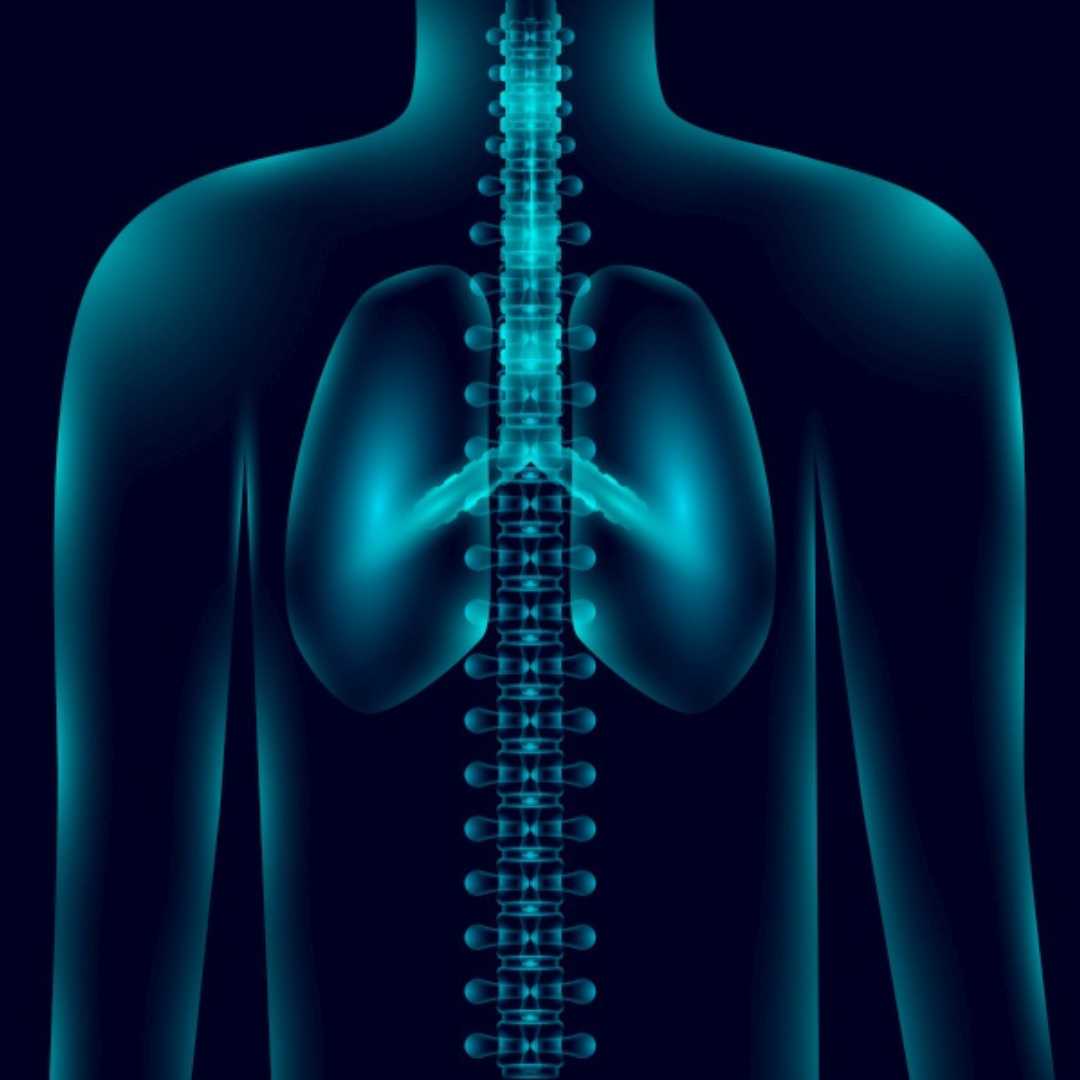






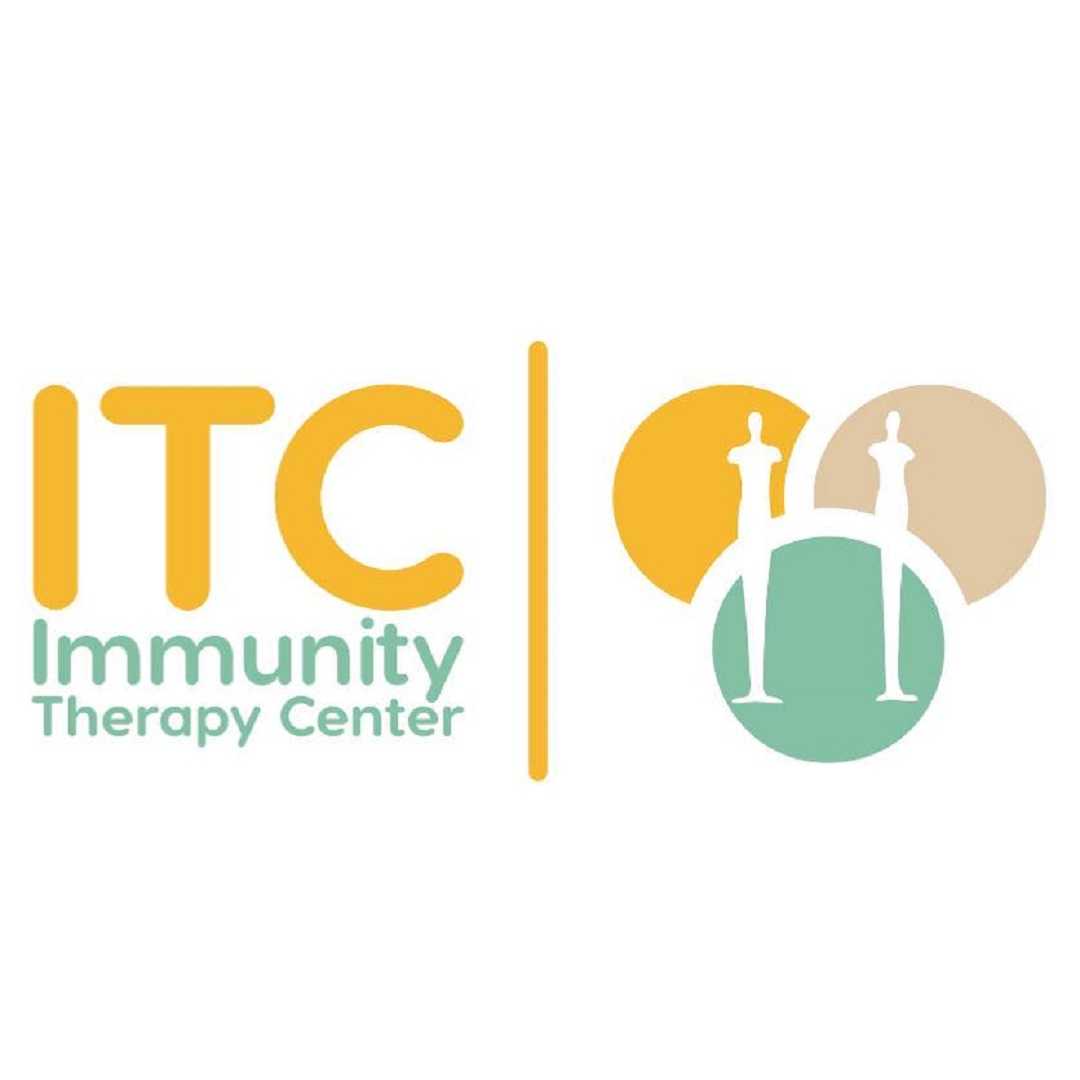
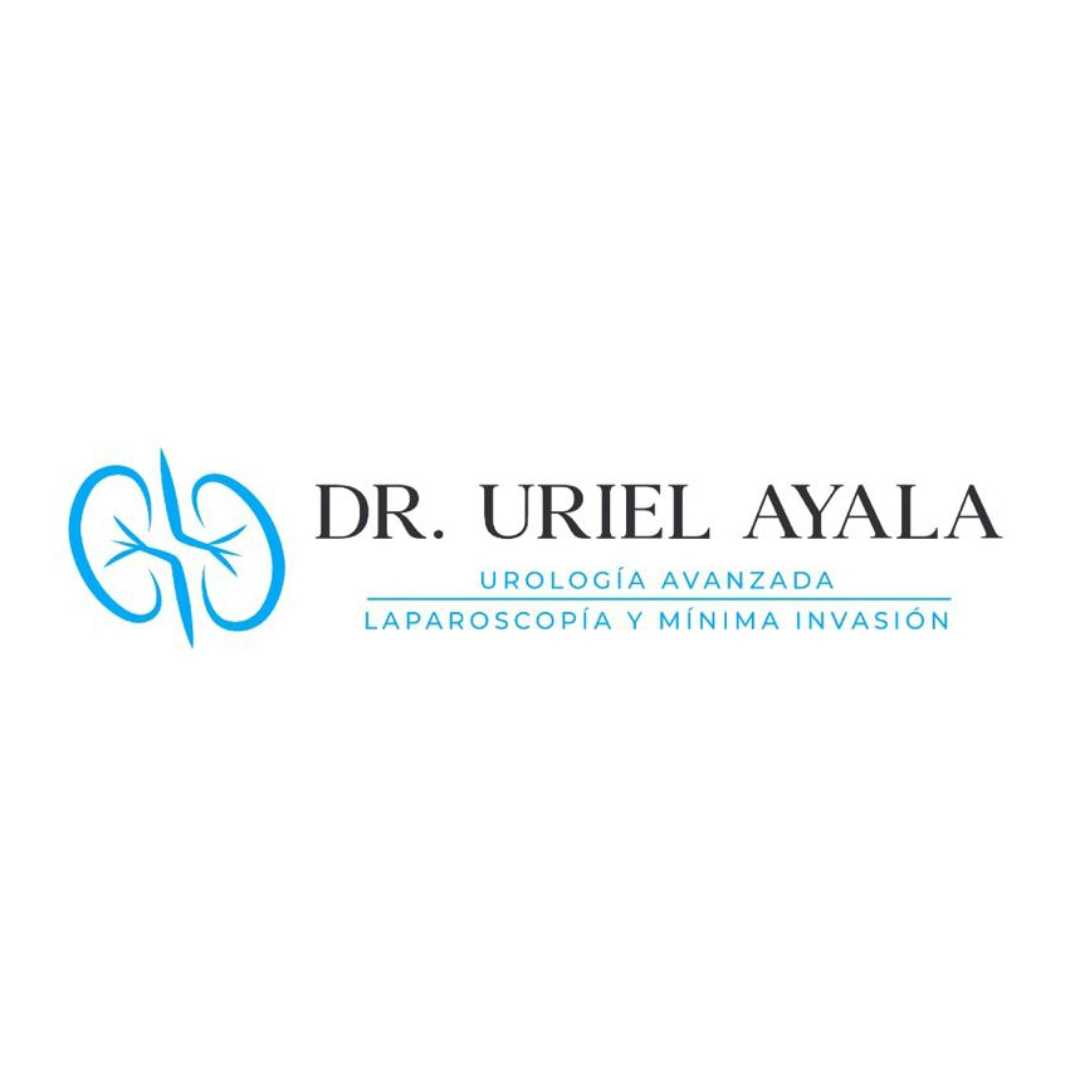
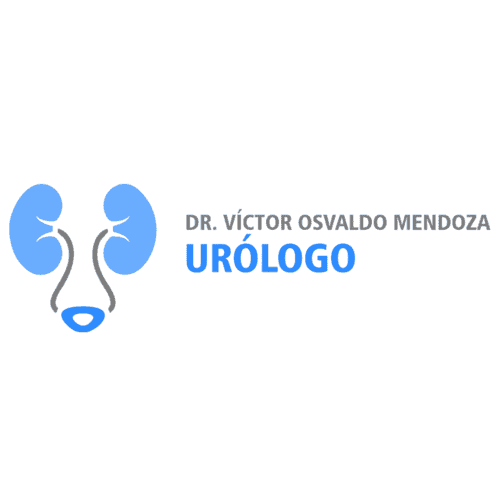
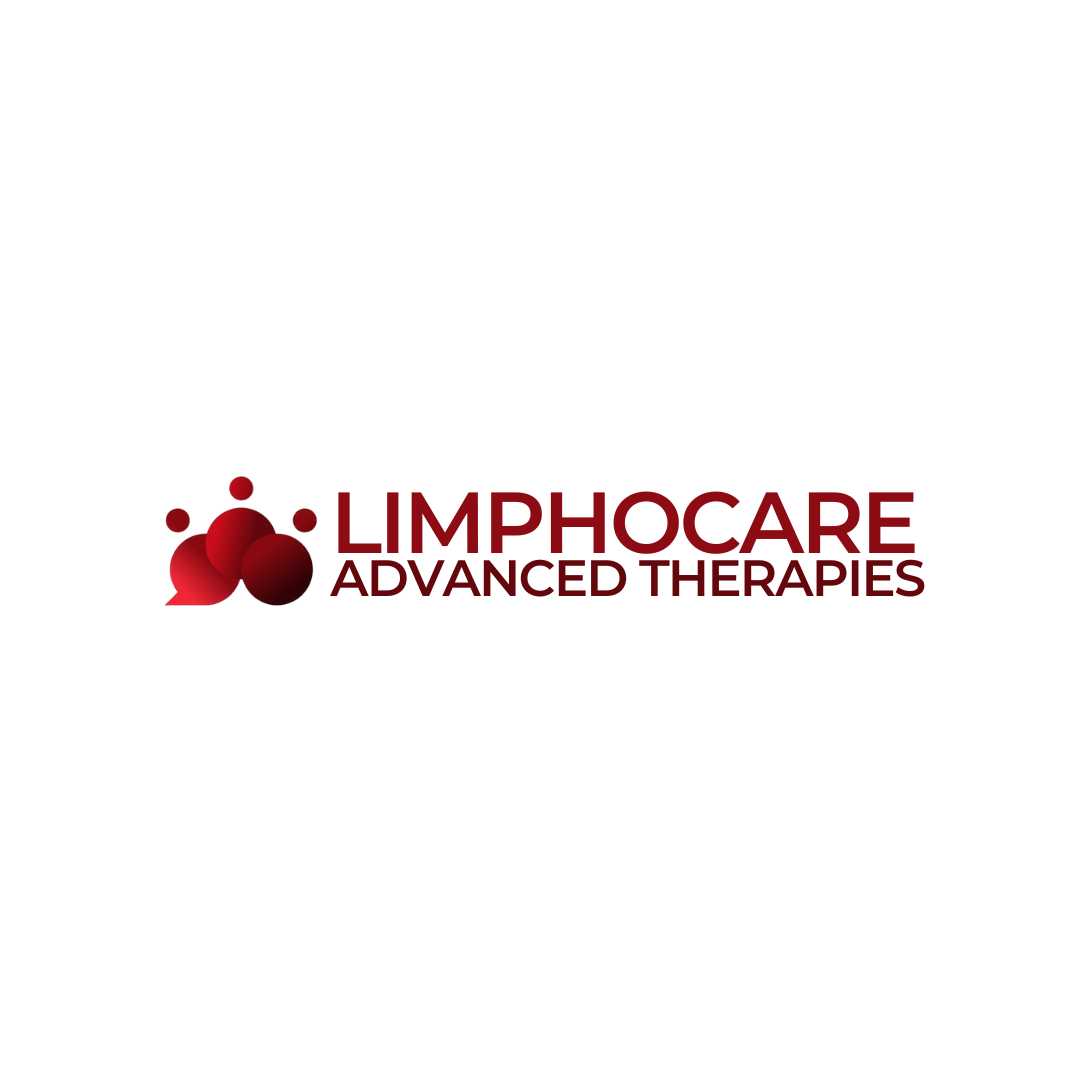
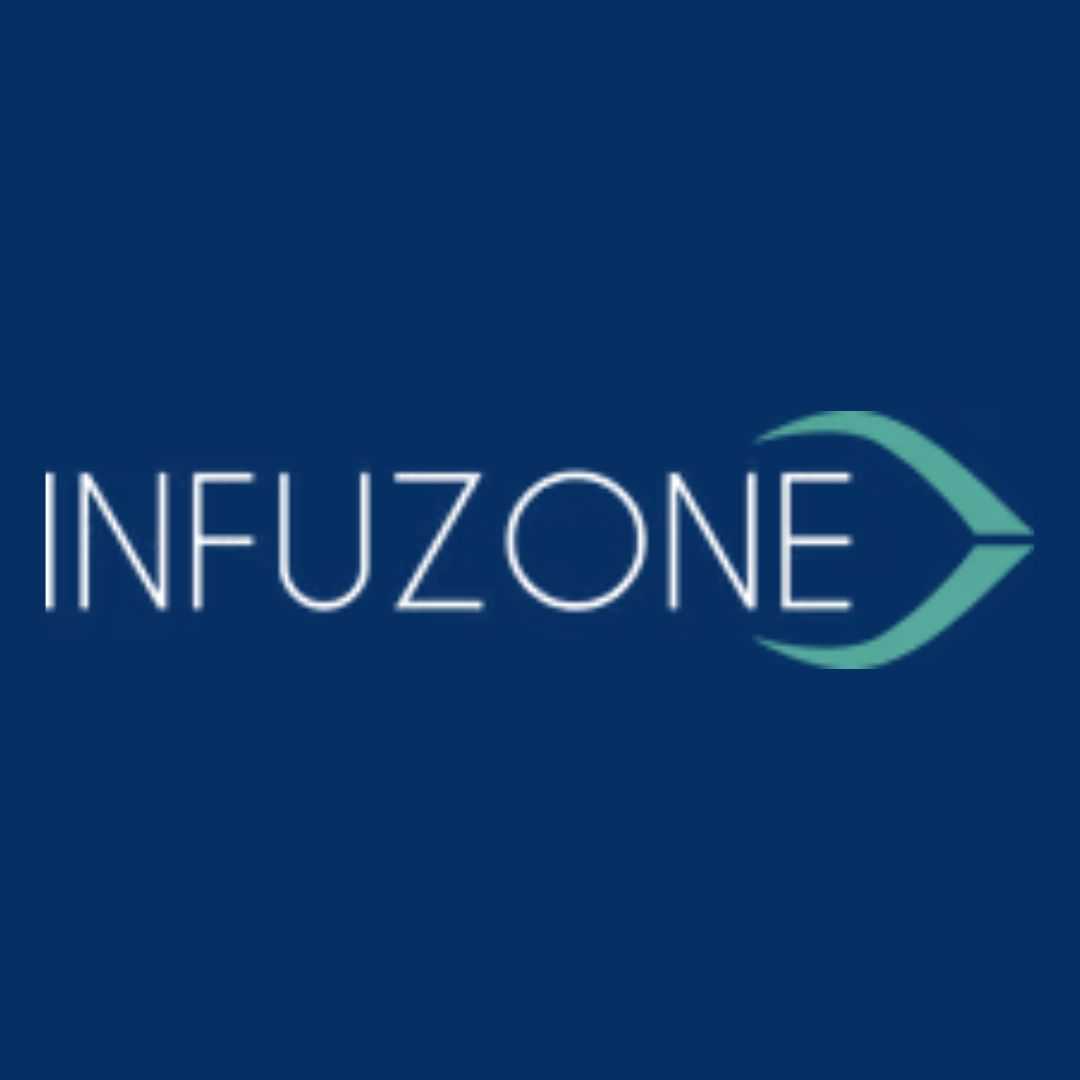

Share this listing